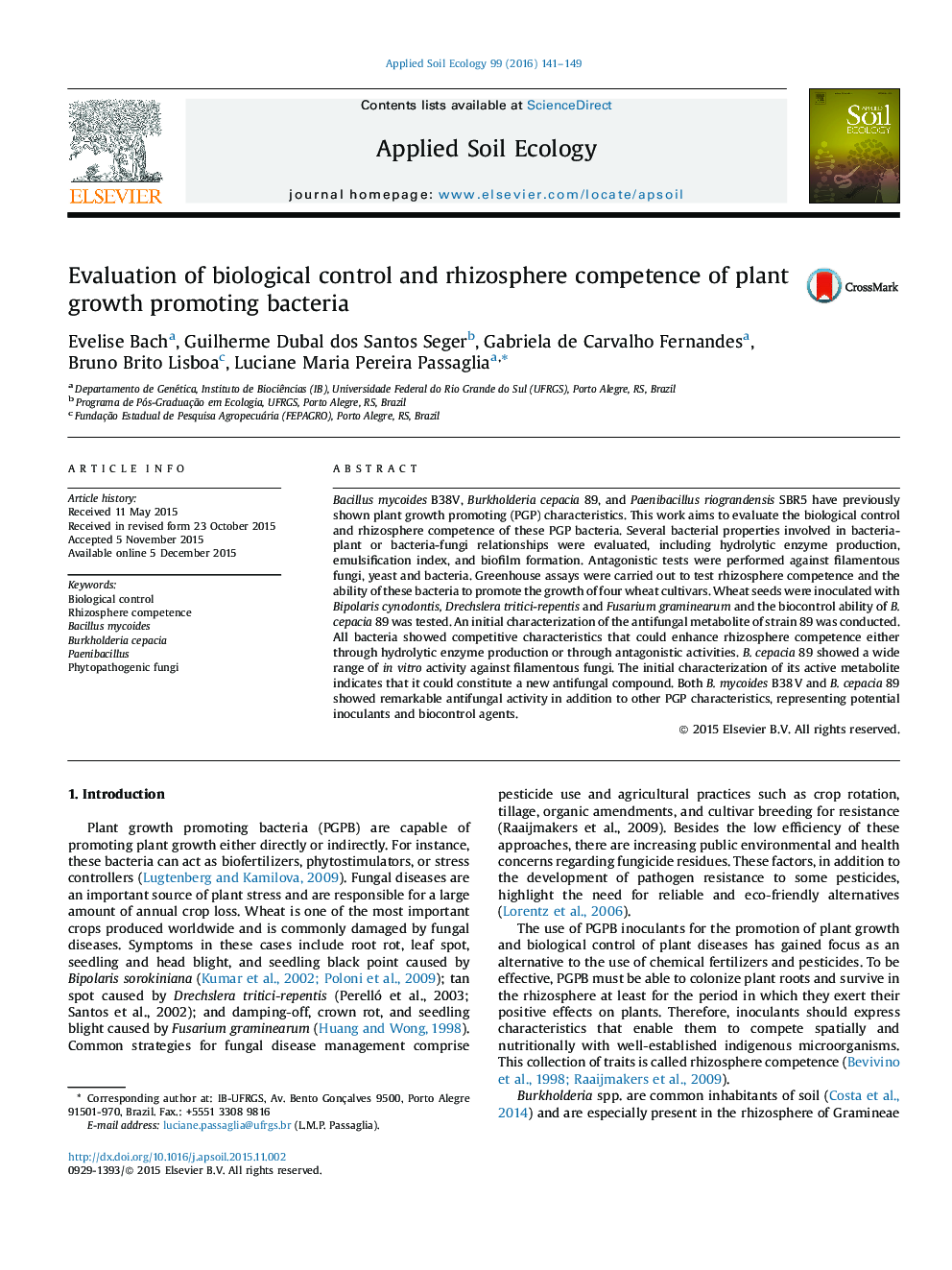| Article ID | Journal | Published Year | Pages | File Type |
|---|---|---|---|---|
| 4381847 | Applied Soil Ecology | 2016 | 9 Pages |
•Biological control and rhizosphere competence of PGPB were evaluated.•The importance of isolating inoculants from the same plant is discussed.•PGPB showed competitive characteristics that could enhance rhizosphere competence.•Initial characterization of an antifungal metabolite was conducted.
Bacillus mycoides B38V, Burkholderia cepacia 89, and Paenibacillus riograndensis SBR5 have previously shown plant growth promoting (PGP) characteristics. This work aims to evaluate the biological control and rhizosphere competence of these PGP bacteria. Several bacterial properties involved in bacteria-plant or bacteria-fungi relationships were evaluated, including hydrolytic enzyme production, emulsification index, and biofilm formation. Antagonistic tests were performed against filamentous fungi, yeast and bacteria. Greenhouse assays were carried out to test rhizosphere competence and the ability of these bacteria to promote the growth of four wheat cultivars. Wheat seeds were inoculated with Bipolaris cynodontis, Drechslera tritici-repentis and Fusarium graminearum and the biocontrol ability of B. cepacia 89 was tested. An initial characterization of the antifungal metabolite of strain 89 was conducted. All bacteria showed competitive characteristics that could enhance rhizosphere competence either through hydrolytic enzyme production or through antagonistic activities. B. cepacia 89 showed a wide range of in vitro activity against filamentous fungi. The initial characterization of its active metabolite indicates that it could constitute a new antifungal compound. Both B. mycoides B38 V and B. cepacia 89 showed remarkable antifungal activity in addition to other PGP characteristics, representing potential inoculants and biocontrol agents.
